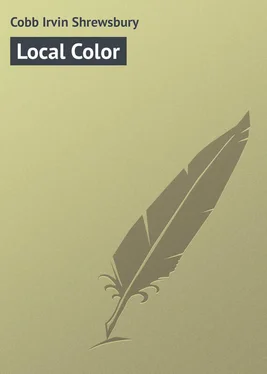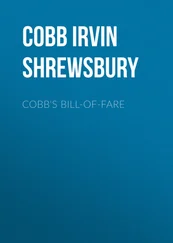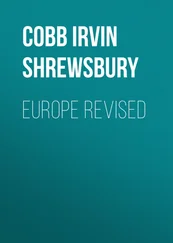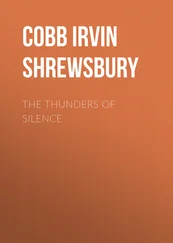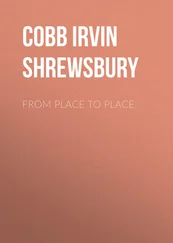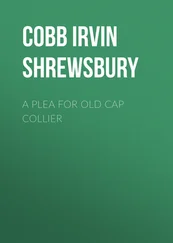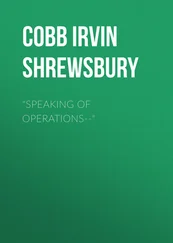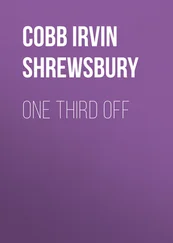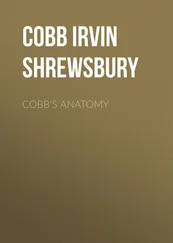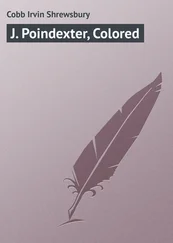Irvin Cobb - Local Color
Здесь есть возможность читать онлайн «Irvin Cobb - Local Color» — ознакомительный отрывок электронной книги совершенно бесплатно, а после прочтения отрывка купить полную версию. В некоторых случаях можно слушать аудио, скачать через торрент в формате fb2 и присутствует краткое содержание. Жанр: foreign_prose, на английском языке. Описание произведения, (предисловие) а так же отзывы посетителей доступны на портале библиотеки ЛибКат.
- Название:Local Color
- Автор:
- Жанр:
- Год:неизвестен
- ISBN:нет данных
- Рейтинг книги:5 / 5. Голосов: 1
-
Избранное:Добавить в избранное
- Отзывы:
-
Ваша оценка:
- 100
- 1
- 2
- 3
- 4
- 5
Local Color: краткое содержание, описание и аннотация
Предлагаем к чтению аннотацию, описание, краткое содержание или предисловие (зависит от того, что написал сам автор книги «Local Color»). Если вы не нашли необходимую информацию о книге — напишите в комментариях, мы постараемся отыскать её.
Local Color — читать онлайн ознакомительный отрывок
Ниже представлен текст книги, разбитый по страницам. Система сохранения места последней прочитанной страницы, позволяет с удобством читать онлайн бесплатно книгу «Local Color», без необходимости каждый раз заново искать на чём Вы остановились. Поставьте закладку, и сможете в любой момент перейти на страницу, на которой закончили чтение.
Интервал:
Закладка:
Swango belonged to the former category. It was over the hill, a hot and dusty eighth of a mile away. So, having watched the departing four-five accommodation until it diminished to a smudgy dot where the V of the rails melted together and finally vanished, the assembled Swangoans settled back in postures of ease to wait for the up train due at three-eight, but reported two hours and thirty minutes late. There would still be ample time after it came and went to get home for supper.
The contemptuous travelling man who once said that only three things ever happened in Swango – morning, afternoon and night – perpetrated a libel, for he wilfully omitted mention of three other daily events: the cannon-ball, tearing through without stopping in the early forenoon; the three-eight up; and the four-five down.
So they sat and waited; but a spirit of depression, almost of sadness, affected one and all. It was as though a beaming light had gone out of their lives. Ginger Marable, porter and runner of the Mansard House, voiced the common sentiment of both races as he lolled on a baggage truck in the sunshine, with his cap of authority, crowned by a lettered tin diadem, shoved far back upon his woolly skull.
“Dat Mistah Gashney Tuttle he sho is a quick ketcher,” stated Ginger with a soft chuckle. “W’ite an’ black – we suttinly will miss Mistah Tuttle twell he gits back home ag’in.”
Borne away from his loyal subjects to the pulsing accompaniment of the iron horse’s snorted breath, the subject of this commentary extended himself on his red plush seat and considered his fellow travellers with a view to honing his agile fancy on the whetstones of their duller mentalities. On the whole, they promised but poor sport. Immediately in front of him sat a bride and groom, readily recognisable at a glance for what they were – the bride in cream-coloured cashmere, with many ribbons; the groom in stiff black diagonals, with braided seams, and a white lawn tie. A red-faced man who looked as though he might be a deputy sheriff from somewhere slept uneasily one seat in the rear. He had his shoes off, revealing gray yarn socks. His mouth was ajar, and down in his throat he snored screechily, like a planing mill. The youngest member of a family group occupying two seats just across the aisle whimpered a desire. Its mother rummaged in a shoebox containing, among other delicacies, hard-boiled eggs, salt and pepper mixed and enveloped in a paper squill, blueberry pie, leaking profusely, and watermelon-rind preserves, and found what she sought – the lower half of a fried chicken leg. Satisfied by this gift the infant ceased from fretful repining, sucking contentedly at the meat end; and between sucks hammered contentedly with the drumstick on the seat back and window ledge, leaving lardy smears there in the dust.
Cap’n Buck – captain by virtue of having a regular passenger run – came through the car, collecting tickets. At no time particularly long on temper, he was decidedly short of it to-day. He was fifteen minutes behind his schedule – no unusual thing – but the locomotive was misbehaving. Likewise a difference of opinion had arisen over the proper identity of a holder of mileage in the smoker. He halted alongside Gash Tuttle, swaying on his legs to the roll and pitch of the car floor.
“Tickets?” he demanded crisply.
“Wee gates, Cap,” answered the new passenger jovially. “How does your copperosity seem to sagashuate this evenin’?”
“Where goin’?” said Fluter, ignoring the pleasantry. “I’m in a hurry. What station?”
“Well,” countered the irrepressible one, “what stations have you got?”
Cap’n Buck Fluter’s cold eye turned meaningly toward the bell cord, which dipped like a tired clothesline overhead, and he snapped two fingers peevishly.
“Son,” he said almost softly, “don’t monkey with me. This here ain’t my day for foolin’!”
Favoured son of the high gods though he was, Gash Tuttle knew instantly now that this was indeed no day for fooling. Cap’n Buck was not a large man, but he had a way of growing to meet and match emergencies. He handled the Sunday excursions, which was the acid test of a trainman’s grit. Coltish youths, alcoholically keened up or just naturally high spirited, who got on his train looking for trouble nearly always got off looking for a doctor. As regards persons wishful of stealing a ride, they never tried to travel with Cap’n Buck Fluter oftener than once. Frequently, for a period of time measurable by days or weeks, they were in no fit state to be travelling with any one except a trained nurse.
Gash Tuttle quit his fooling. Without further ado – whatever an ado is – he surrendered his ticket, receiving in exchange a white slip with punchmarks in it, to wear in his hatband. Next came the train butcher bearing chewing gum, purple plums in paper cornucopias, examples of the light literature of the day, oranges which were overgreen, and bananas which were overripe, as is the way with a train butcher’s oranges and bananas the continent over. In contrast with the conductor’s dourness the train butcher’s mood was congenially inclined to persiflage.
After an exchange of spirited repartee, at which the train butcher by an admiring shake of the head tacitly confessed himself worsted, our hero purchased a paper-backed work entitled, “The Jolly Old Drummer’s Private Joke Book.” This volume, according to the whispered confidences of the seller, contained tales of so sprightly a character that even in sealed covers it might be sent by mail only at the sender’s peril; moreover, the wink which punctuated this disclosure was in itself a promise of the spicy entertainment to be derived from perusal thereof. The price at present was but fifty cents; later it would go up to a dollar a copy; this, then, was a special and extraordinary rate.
The train continued on its course – not hurriedly, but with reasonable steadfastness and singleness of purpose. After much the same fashion the sun went down. The bride repeatedly whisked cindery deposits off her cashmered lap; the large-faced man, being awakened by one of his own snores, put on his shoes and indulged in fine-cut tobacco, internally applied; but the youngest passenger now slept all curled up in a moist little bundle, showing an expanse of plump neck much mottled by heat-rash, and clutching in one greased and gritted fist the denuded shank-bone of a chicken with a frieze of gnawed tendons adhering to its larger joint.
At intervals the train stopped at small way stations, bus or non-bus in character as the case might be, to let somebody off or somebody on. Cap’n Buck now made his trips carrying his lantern – the ornate nickel-plated one that had been awarded to him in the voting contest for the most popular trainman at the annual fair and bazaar of True Blue Lodge of the Junior Order of American Mechanics. It had his proper initials – J. J. F. – chased on its glass chimney in old English script, very curlicue and ornamental. He carried it in the crook of his left elbow with the handle round his biceps; and when he reached the end of his run he would extinguish its flame, not by blowing it out but by a quick, short, expert jerk of his arm. This is a trick all conductors seek to acquire; some of them succeed.
Twilight, the stage manager of night, had stolen insidiously on the scene, shortening up the backgrounds and blurring the perspectives; and the principal character of this tale, straining his eyes over the fine print, had reached the next to the last page of “The Jolly Old Drummer’s Private Joke Book” and was beginning to wonder why the postal authorities should be so finicky in such matters and in a dim way to wish he had his fifty cents back, when with a glad shriek of relief the locomotive, having bumped over a succession of yard switches, drew up under a long open shed alongside a dumpy brick structure. To avoid any possible misunderstanding this building was labelled Union Depot in large letters and at both ends.
Читать дальшеИнтервал:
Закладка:
Похожие книги на «Local Color»
Представляем Вашему вниманию похожие книги на «Local Color» списком для выбора. Мы отобрали схожую по названию и смыслу литературу в надежде предоставить читателям больше вариантов отыскать новые, интересные, ещё непрочитанные произведения.
Обсуждение, отзывы о книге «Local Color» и просто собственные мнения читателей. Оставьте ваши комментарии, напишите, что Вы думаете о произведении, его смысле или главных героях. Укажите что конкретно понравилось, а что нет, и почему Вы так считаете.
